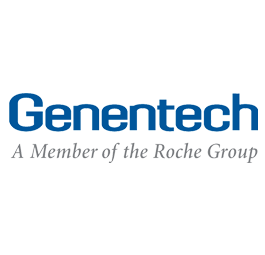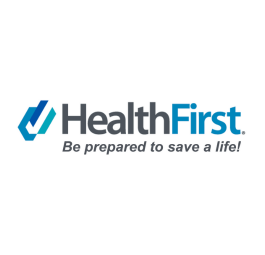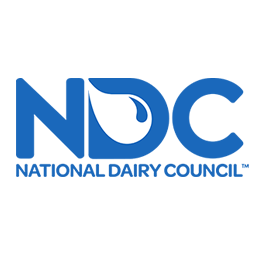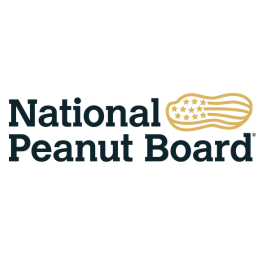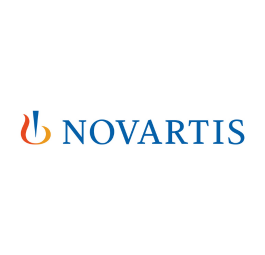Contains: Courage® Research Retreat Sets Attendance Records, Maps New Directions
A two-day virtual conference, open to the public for the first time, explores new frontiers in food allergy diagnosis, monitoring, treatment and prevention.
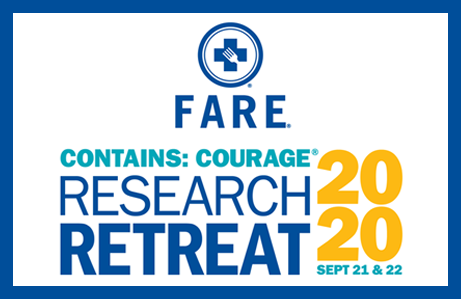
From our earliest days, even before the Food Allergy & Anaphylaxis Network (FAAN) and the Food Allergy Initiative (FAI) merged in 2012 to form FARE (Food Allergy Research & Education), our organization has invited leaders in clinical care, academia, industry, public health and patient advocacy to share recent findings in food allergy research and foster collaborations. This year, the COVID-19 pandemic transformed FARE’s annual Contains: Courage® Research Retreat from a small, invitation-only meeting into a public, all-virtual event drawing more than 600 registrations and 22,000 Facebook views.
The two-day virtual conference was held Monday, September 21, and Tuesday, September 22. In welcoming the participants, FARE’s chief executive officer Lisa Gable was joined by special guest Anthony Fauci, MD, the director of the National Institute of Allergy and Infectious Diseases (NIAID). Dr. Fauci thanked participants for meeting virtually and hailed the 2020 launch of Palforzia, a peanut-based oral immunotherapy that is the first food allergy treatment to receive approval from the Food and Drug Administration. Later, chief of NIAID’s Allergy, Asthma and Airway Biology branch, Alkis Togias, MD, discussed the agency’s priorities in food allergy research, including ongoing and upcoming projects.
To close the first day, FARE’s medical advisor for Innovation, Kari Nadeau, MD PhD (Stanford University), discussed possible causes and cures for food allergy, emphasizing recent human research. The Research Retreat’s final presentation explored issues of diversity, equity, inclusion and access in food allergy research in a discussion featuring FARE Clinical Network principal investigators Carla M. Davis, MD (Texas Children’s Hospital, Baylor College of Medicine) and Amaziah Coleman, MD (Children’s National Hospital, George Washington University School of Medicine and Health Sciences) and moderated by dean and professor Ian H. Solomon, JD (Frank Batten School of Leadership and Public Policy, University of Virginia).
FARE’s research strategy is to expand our understanding of the biology underlying food allergy, identify new treatments that provide durable desensitization to multiple food allergens, replace the oral food challenge with biomarker-based methods of diagnosis and monitoring, and develop effective approaches to prevention. More than 30 individual talks and panel discussions explained emerging knowledge in each of these areas and highlighted opportunities on the horizon.
Through the FARE Clinical Network, the FARE Patient Registry, our evolving biorepository and data infrastructure, and partnerships with other leading institutions, FARE is helping scientists and clinicians to shed light on how wide-ranging genetic and environmental factors contribute to the development of food tolerance or food allergy. Remarkable progress is being made to reveal the mechanisms of this process and the complex factors that influence it, including the foods we learn to eat as infants, the function of the skin and gut barriers that control entry into our bodies and cells, the abundant microbes that live on us and within us, and the molecular and cellular signals through which our immune, nervous and digestive systems communicate.
In the coming weeks we plan to feature selected Contains: Courage® Research Retreat presentations on FARE's website. You can also hear more about some of the topics discussed at the Research Retreat by listening to our 2020 webinar series on the latest in food allergy treatment and management. Stay tuned to learn more about the exciting future of food allergy research!
Questions concerning FARE’s research initiatives discussed at the 2020 Contains: Courage® Research Retreat should be directed to Bruce Roberts, PhD, research, science and innovation officer for FARE.





